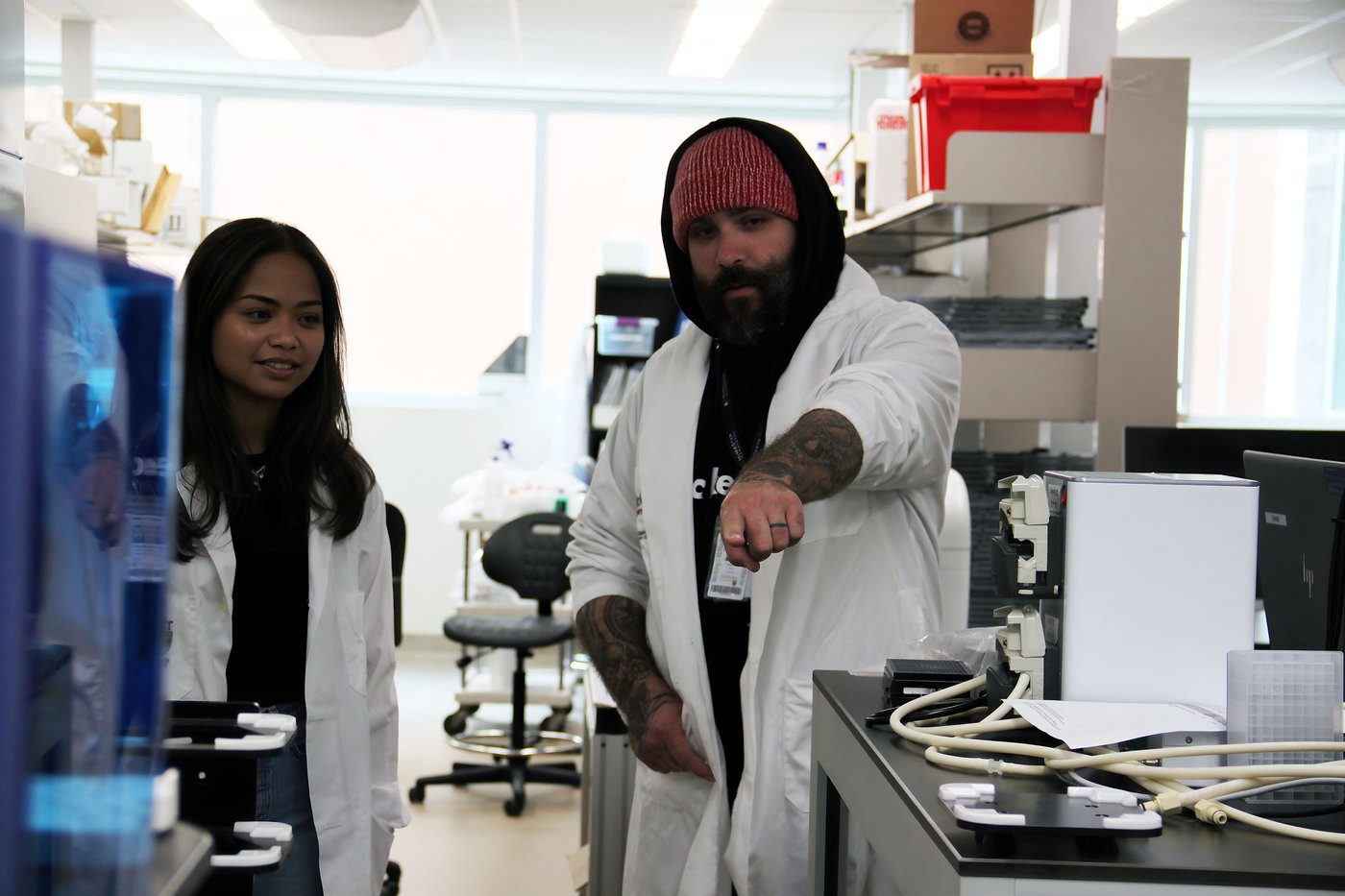Science
AI Accelerates Breakthrough Antibiotic Discovery for Bowel Disease

A researcher from McMaster University in Hamilton has leveraged artificial intelligence (AI) to develop a potential breakthrough antibiotic treatment for Crohn’s disease and other forms of inflammatory bowel disease (IBD). The innovative approach, led by Jon Stokes and his team, alongside partners from the Massachusetts Institute of Technology, has significantly reduced the time and cost typically associated with antibiotic discovery.
Traditionally, developing a new antibiotic can take several years and cost millions of dollars. However, Stokes’s lab completed the initial stages of this process in approximately six months, with a budget of around $60,000. This rapid advancement demonstrates the potential of AI to transform healthcare research by streamlining complex scientific processes.
AI’s Role in Medical Research
Wyatt Tessari L’Allié, founder of AI Governance and Safety Canada, commented on the implications of AI in medical research. He emphasized that while the use of AI in this context is largely positive, it is essential for researchers to verify the results generated by AI systems. Tessari L’Allié noted the lack of comprehensive AI legislation in Canada that encompasses healthcare applications, stating that medical use is overseen by Health Canada on a case-by-case basis.
Canada has one of the highest prevalence rates of inflammatory bowel disease globally, affecting thousands of individuals who currently have no cure. The significance of this research lies not only in its potential to provide new treatment options but also in its promise to enhance the efficiency of medical discoveries.
The Future of Antibiotic Discovery
The AI-driven approach employed by Stokes and his team could pave the way for future breakthroughs in antibiotic development. By harnessing advanced technology, researchers can identify viable treatment candidates more swiftly than ever before, potentially revolutionizing how medical professionals approach chronic diseases.
This report was initially published by The Canadian Press on October 5, 2025, highlighting the intersection of technology and healthcare in addressing urgent medical challenges. As the landscape of antibiotic resistance continues to evolve, innovative methods such as this offer hope for effective treatments in the near future.
-

 Lifestyle1 month ago
Lifestyle1 month agoWinnipeg Celebrates Culinary Creativity During Le Burger Week 2025
-

 Health2 months ago
Health2 months agoMontreal’s Groupe Marcelle Leads Canadian Cosmetic Industry Growth
-

 Science2 months ago
Science2 months agoMicrosoft Confirms U.S. Law Overrules Canadian Data Sovereignty
-

 Education2 months ago
Education2 months agoRed River College Launches New Programs to Address Industry Needs
-

 Technology2 months ago
Technology2 months agoDragon Ball: Sparking! Zero Launching on Switch and Switch 2 This November
-

 Science2 months ago
Science2 months agoTech Innovator Amandipp Singh Transforms Hiring for Disabled
-

 Technology2 months ago
Technology2 months agoGoogle Pixel 10 Pro Fold Specs Unveiled Ahead of Launch
-

 Science2 months ago
Science2 months agoChina’s Wukong Spacesuit Sets New Standard for AI in Space
-

 Technology2 months ago
Technology2 months agoWorld of Warcraft Players Buzz Over 19-Quest Bee Challenge
-

 Science2 months ago
Science2 months agoXi Labs Innovates with New AI Operating System Set for 2025 Launch
-

 Business2 months ago
Business2 months agoDawson City Residents Rally Around Buy Canadian Movement
-

 Business2 months ago
Business2 months agoNew Estimates Reveal ChatGPT-5 Energy Use Could Soar
-

 Technology2 months ago
Technology2 months agoInnovative 140W GaN Travel Adapter Combines Power and Convenience
-

 Technology2 months ago
Technology2 months agoFuture Entertainment Launches DDoD with Gameplay Trailer Showcase
-

 Technology2 months ago
Technology2 months agoGlobal Launch of Ragnarok M: Classic Set for September 3, 2025
-

 Education2 months ago
Education2 months agoAlberta Teachers’ Strike: Potential Impacts on Students and Families
-

 Technology2 months ago
Technology2 months agoNew IDR01 Smart Ring Offers Advanced Sports Tracking for $169
-

 Technology2 months ago
Technology2 months agoArsanesia Unveils Smith’s Chronicles with Steam Page and Trailer
-

 Technology2 months ago
Technology2 months agoHumanoid Robots Compete in Hilarious Debut Games in Beijing
-

 Science2 months ago
Science2 months agoNew Precision Approach to Treating Depression Tailors Care to Patients
-

 Health2 months ago
Health2 months agoGiant Boba and Unique Treats Take Center Stage at Ottawa’s Newest Bubble Tea Shop
-

 Technology2 months ago
Technology2 months agoQuoted Tech Launches Back-to-School Discounts on PCs
-

 Business2 months ago
Business2 months agoBNA Brewing to Open New Bowling Alley in Downtown Penticton
-

 Technology2 months ago
Technology2 months agoDiscover the Relaxing Charm of Tiny Bookshop: A Cozy Gaming Escape










